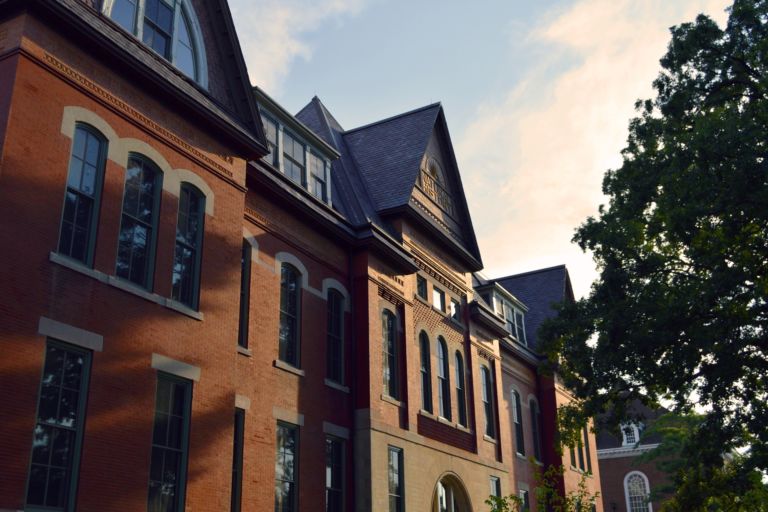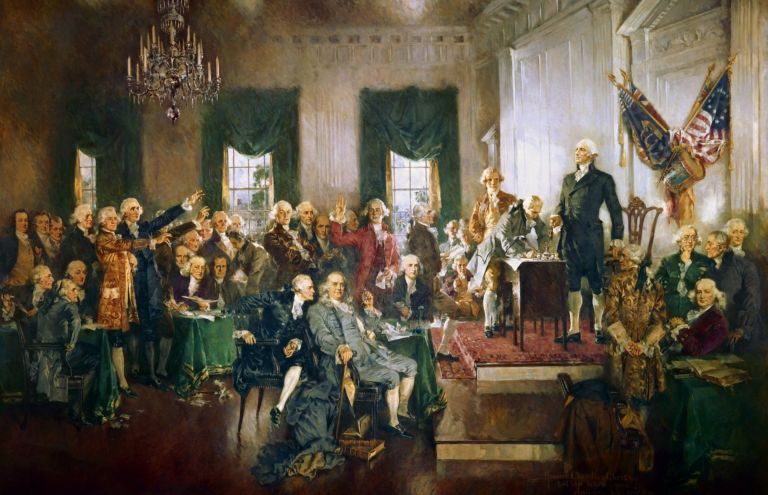In 1961, Ronald Reagan said:
“Freedom is never more than one generation away from extinction. We didn’t pass it on to our children in the bloodstream. The only way they can inherit the freedom we have known is if we fight for it, protect it, defend it, and then hand it to them with the well fought lessons of how they in their lifetime must do the same…”
We recently polled likely North Carolina voters in our latest Civitas Poll, asking how they identify their political affiliation. Forty-six percent identified themselves as conservative, 25% picked the liberal option, and the remainder chose either “moderate” or nothing.
This leads me to wonder: How has the idea of conservatism changed over the past half-century, and why must we revisit and re-align our efforts to reflect the common goal of freedom and liberty?
Many policy professionals, journalists, and advocates support that goal in a new project: Freedom Conservatism.
Leaders of this exciting effort recently unveiled a statement of principles. Two of the signers, our CEO, Donald Bryson, and our Vice President of Communications, Brooke Medina, also pledged their support in this effort and affirmed “freedom” in the conservative movement and the principles that define it.
You can read each fundamental principle’s full explanations here.
They are as follows:
- Liberty
- The Pursuit of Happiness
- The Foundation of Prosperity
- Full Faith and Credit
- A Nation of Laws, Not Men
- Americans By Choice
- Out of Many, One
- America’s Promissory Note
- The Shining City On a Hill
. - Freedom of Conscience
.
After reading and digesting these ten points, I found myself pondering the following statement:
Individual liberty and freedom are under attack, and authoritarianism and government overreach are rising at home and abroad.
People on both sides of the political aisle are rejecting the distinctive ideas that made America great in the first place. What happened to that saying that President Ronald Reagan often referenced: “A Shining City on a Hill”?
Our CEO, Donald Bryson, recently published an article in The Carolina Journal explaining his reasoning behind signing his name to the Freedom Conservatism Project, stating:
“As some seek to make conservatism more relevant in American politics, now is not the time to abandon its rich history of preserving freedom. Now is the moment to embrace freedom as a policy concept, not leave it. That is why I define myself as a FreeCon — a freedom conservative.”
You can hear Locke CEO Donald Bryson and Vice President of Communications Brooke Medina discuss freedom conservatism on our latest episode of The Debrief.
As mentioned earlier, many Americans support limited government and believe it is the best way to mitigate the risk of bad actors in consolidated power pools like the economy and the government.
Our foundation, named in honor of John Locke, an English philosopher, is deeply inspired by the concepts he gave voice to during the Age of Enlightenment. The essential elements of classical liberal ideals, especially about individual liberty and private property, can be distilled from his Second Treatise of Government:
John Locke asserted that every human possesses “perfect freedom” to manage and utilize their property “as they think fit.”
He also identified that this liberty is not hierarchical or subject to another’s control but shared equally among all and that “all men” are to respect the rights of others and refrain from infringing upon them.
Strong words that I fear have become long forgotten by too many.
One of the founders of the Freedom Conservatism project and a current John Locke Foundation board member, John Hood, said:
“We FreeCons don’t necessarily agree on every policy issue or priority. What we have in common, however, are a firm commitment to America’s founding principles and a passionate belief that political movements defined primarily by what they’re against instead of what they’re for are unlikely to build and sustain a successful governing coalition.”
Since the release of principles, Freedom Conservatism has received much attention in the media and political circles and among everyday Americans. According to their website, “hundreds of thousands” of people read the statement within the first few hours of the release.
I am deeply encouraged by this new effort and hope we can unite in the spirit of freedom and strive to preserve that so-called “Shining City on a Hill.”


